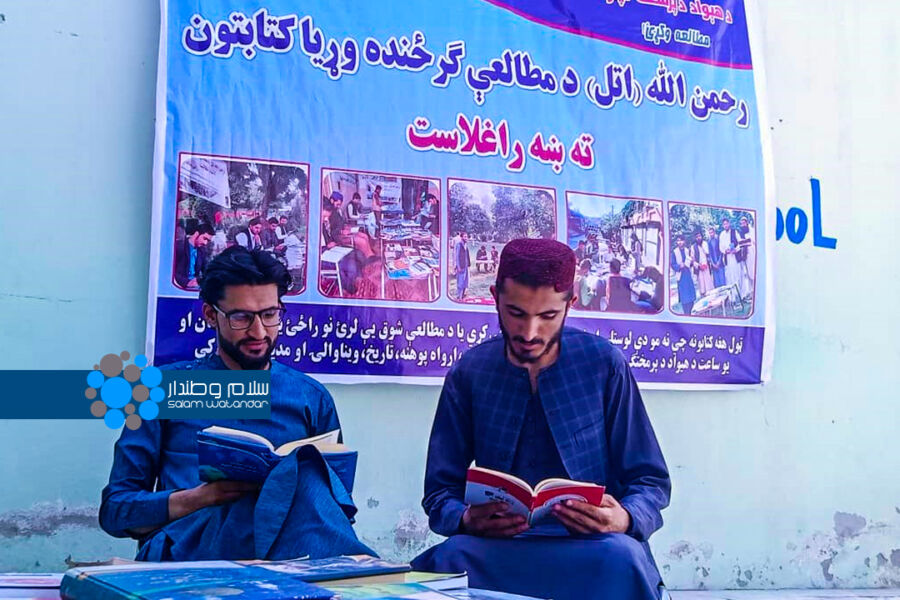Driven by a love for books and a passion for his country, 25-year-old Rahmanullah Atal from Nangarhar, Afghanistan, has created a mobile library to bring knowledge directly to people’s doorsteps.
With the slogan, ‘One hour for yourself, one hour for the country’s progress – read,’ Rahmanullah aims to break down barriers to education and offer young people opportunities for growth.
Rahmanullah took his first steps three years ago after graduating with a law degree. “My motivation came from a deep love for my country and education. When I graduated from university, I already had the desire to work in the field of education and learning,” he says.
In spite of facing financial challenges, Rahmanullah sold his personal phone to fund his dream. With the money from the sale, he bought the initial materials and equipment for his library. Operating in many areas with limited resources made the task more difficult, but despite these challenges, he never gave up and managed to establish the library.
He shares, “On one hand, there were my financial problems; I even sold my personal phone in order to fund the project. I would go from place to place, facing a shortage of books, especially Dari books. When I ran my programs in parks, I struggled with a lack of tables and chairs, among other challenges.”
Rahmanullah adds that the mobile library has provided opportunities for education and reading to young people, especially girls who had been deprived of education. “Many young people, particularly girls who had been deprived of education, found this program to be a positive opportunity, and thanks to this library, I have been able to help hundreds of underprivileged youths access education in Nangarhar and Kabul,” he said.

Rahmanullah highlights that his work has grown, and now, with special discounts, he helps guide young people and children to schools, educational centers, and universities.
“We have signed agreements with many educational centers and schools, offering discounts to introduce students to universities. I also help students gain access to some universities indirectly. This initiative will continue until 2026,” he added.
Meanwhile, Zabihullah Mujahid, spokesperson for the Islamic Emirate’s de-facto government, considers reading essential for personal growth and emphasizes promoting a reading culture among the youths. “The Islamic Emirate encourages youths to read through various methods, hoping that it will play a significant role in changing their lives.”
However, challenges such as economic difficulties, excessive use of the internet and social media by youths, lack of book fairs, and limited access to informational resources have been identified as reasons for the decline in reading culture among young people in Afghanistan.






